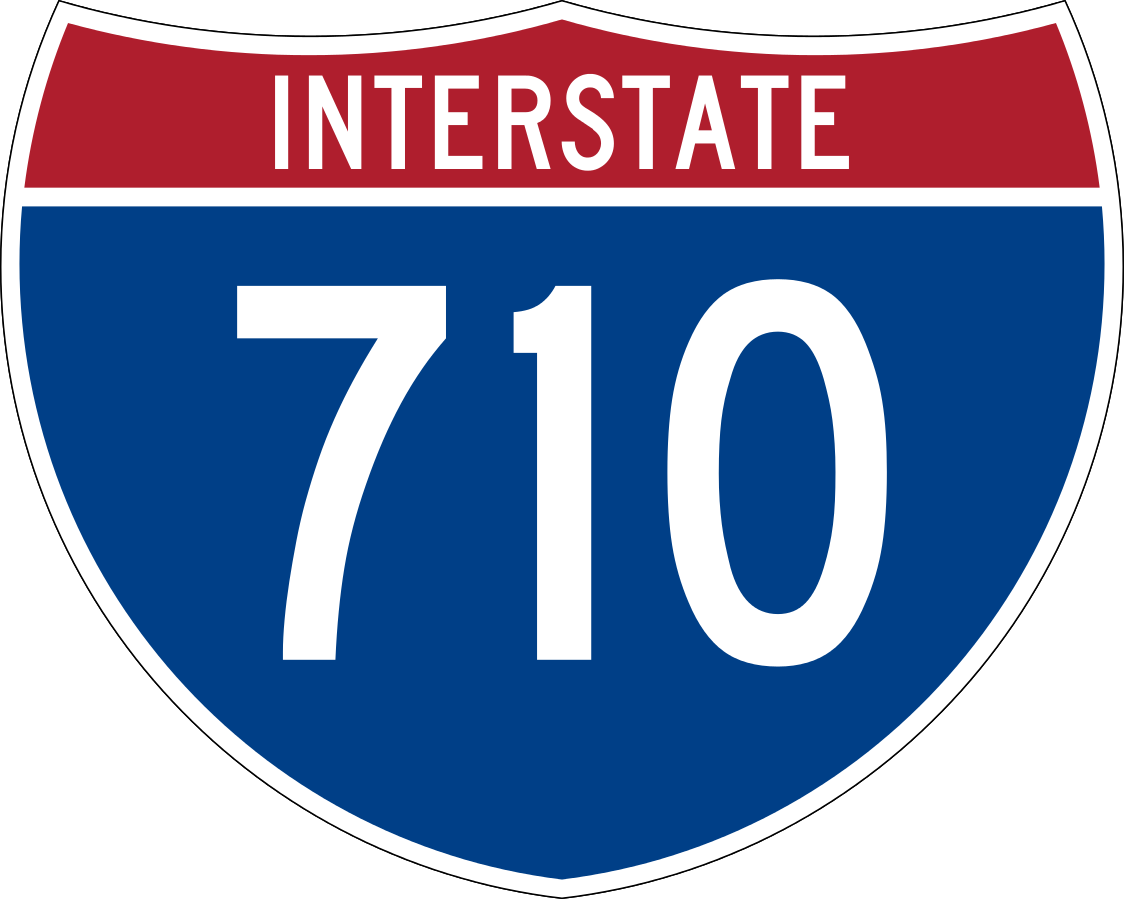
Remember back in 2017 when the 710 Freeway North $6 billion tunnel project was rejected by the Metro board?
At that time, the Metro board approved a motion that directed staff to work with the 710 corridor cities to carve up what was then $780M left in the project budget. That motion specifically called for:
- projects that "promote smart and functional land use, reduce automobile dependency, encourage multi-modal trips, improve trafficoperations, and maximize the use of the latest available technologies to enhance performance of the existing transportation system"
- funding "prioritized for multi-modal and safety enhancement projects."
- among several types of improvements the motion specifically names: transit and rail capital improvements, bikeways, and pedestrian improvements.
The funds will go to projects in the cities along the corridor where the freeway tunnel would have been: Pasadena, South Pasadena, Alhambra, La Cañada Flintridge, and the city of L.A. neighborhood of El Sereno. Adjacent cities expected to experience traffic changes were also included: unincorporated East L.A., Monterey Park, San Gabriel, San Marino, Rosemead. These municipalities submitted project lists to Metro.
In accordance with the language in the motion, cities submitted a broad range of transportation projects. Many were focused on cars, including: street widening, intersection capacity expansion, freeway ramp reconfiguration, signal synchronization, and parking structures. Many projects embraced the multi-modal options, including: complete streets, Bus Rapid Transit, shuttles, bikeways, bike-share, and student transit passes.
The full list of projects totaled $1.2 billion. Available funding is now anticipated to be $730 million, with some additional funds expected from the sale of state-owned properties - though that funding is controlled by the California Transportation Commission.
Metro staff picked projects to move forward under an initial $350 million. The selection process was completely opaque, with no project scoring or ranking, no specifics regarding how projects were selected.
The projects recommended to proceed include:
- Thirteen projects to widen and increase the car capacity of roads, including grade separating the Gold Line at California Boulevard - to increase car through-put on California.
- Six projects to increase the car capacity of intersections, mostly adding more dedicated turn lanes, but also adding a roundabout at Boyle Heights 5-way "cinco puntos" intersection of Cesar Chavez Avenue/Lorena Street/Indiana Street.
- Thirteen signal synchronization/upgrade projects
- One parking project - adding three new parking structures to allow for removal of on-street parking to increase car capacity on Garvey Avenue in Monterey Park
Every single project is about adding car capacity.
(There is a small nod to minor multi-modal project components in some municipalities - L.A., South Pasadena, Pasadena - but the overwhelming thrust of all these projects is adding car capacity.)
This raised the ire of many groups working to make these communities more livable. Nine organizations, including Bike SGV and Investing in Place, signed a letter urging the Metro board to reject the staff recommendations. The letter is critical of Metro's lack of community outreach, lack of transparency, failure to acknowledge disadvantaged and pollution-burdened communities, and broadly a failure to acknowledge any mobility other than driving.
Testifying before Metro's Congestion, Highway and Roads Committee meeting yesterday, Investing in Place Executive Director Jessica Meaney called the proposal a throwback to "old school Metro." Climate Resolve Associate Director Bryn Lindblad termed it "doubling down on car dependence" with no acknowledgement that road widening induces car travel, and worsens congestion, health, pollution, and greenhouse gas emissions.
In justifying their selected projects, Metro staff asserted that transit projects were not "economically sustainable." For some reason, staff did not apply this criteria to car capacity projects, implying the oft-repeated falsehood that road projects or parking structures somehow pay for themselves. Staff acknowledged that more-or-less the entire list of projects needed more study and more scoping, but then justified not including certain livability-minded projects due to "vague scoping." Staff questioned whether non-car projects were justified, though without any clarification of what justification criteria was being used. It was not named, but the justification seems to be the outdated and inaccurate Level of Service metric that only measures car capacity.
Metro director Jacqueline Dupont-Walker raised some concerns over the lack of transparency in the process, and the lack of "multi-modal or safety" projects as specified in the motion. Dupont-Walker appeared comfortable that green transportation projects remained on the table for consideration in later rounds of funding.
Alhambra Mayor Jeff Maloney testified before the committee urging that Metro fund removing the stub-end of the 710 just north of the 10 Freeway. Staff asserted that the locals needed to study that project further. The committee amended the staff proposal to include this project, at an estimated cost of $100 million.
The Metro Roads Committee approved the staff recommendation - as amended. The proposal will go to the full board meeting on December 6.
It is astonishing that Metro's zombie engineer road-builders do not seem to grasp any broader implications of the rejection of the North 710 Freeway project. They were hell-bent on building ridiculous astronomically-expensive tunnels opposed by the communities they were intended to serve. When the tunnels bit the dust, they were directed to implement the balanced multi-modal vision professed by CEO Phil Washington, the Metro board, Metro's strategic plan, and made urgent by the currently blazing climate crises. Instead of looking towards a healthier future, they offered only narrow-minded 1950s solutions that will worsen congestion and pollution.






